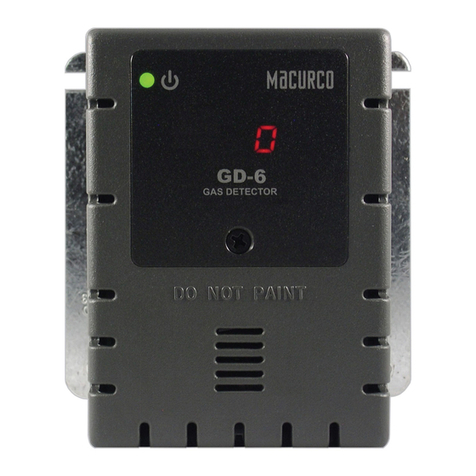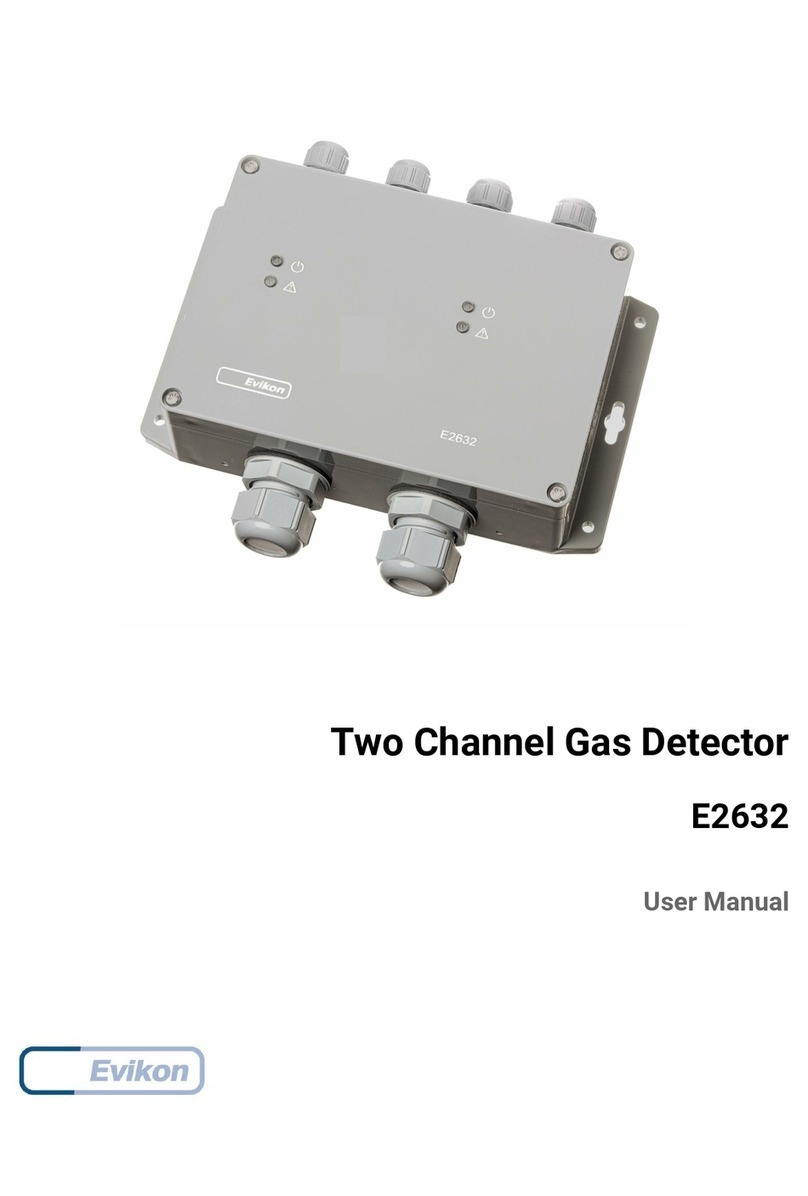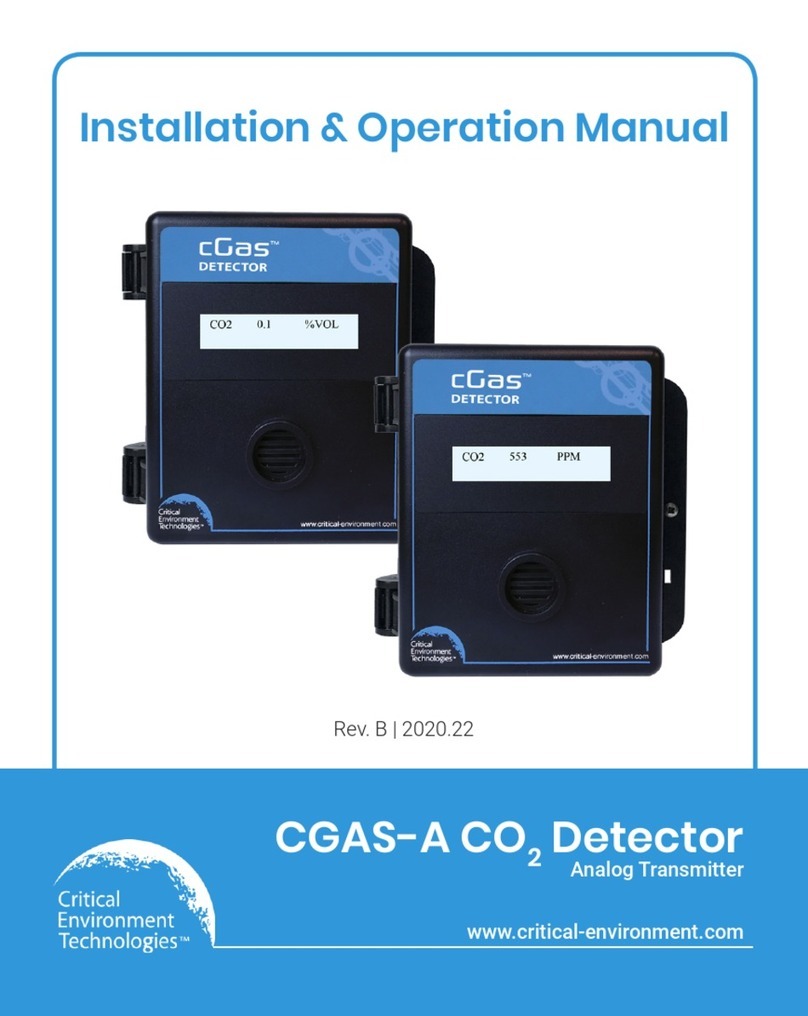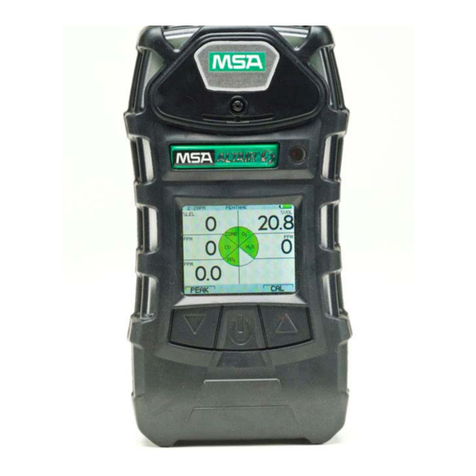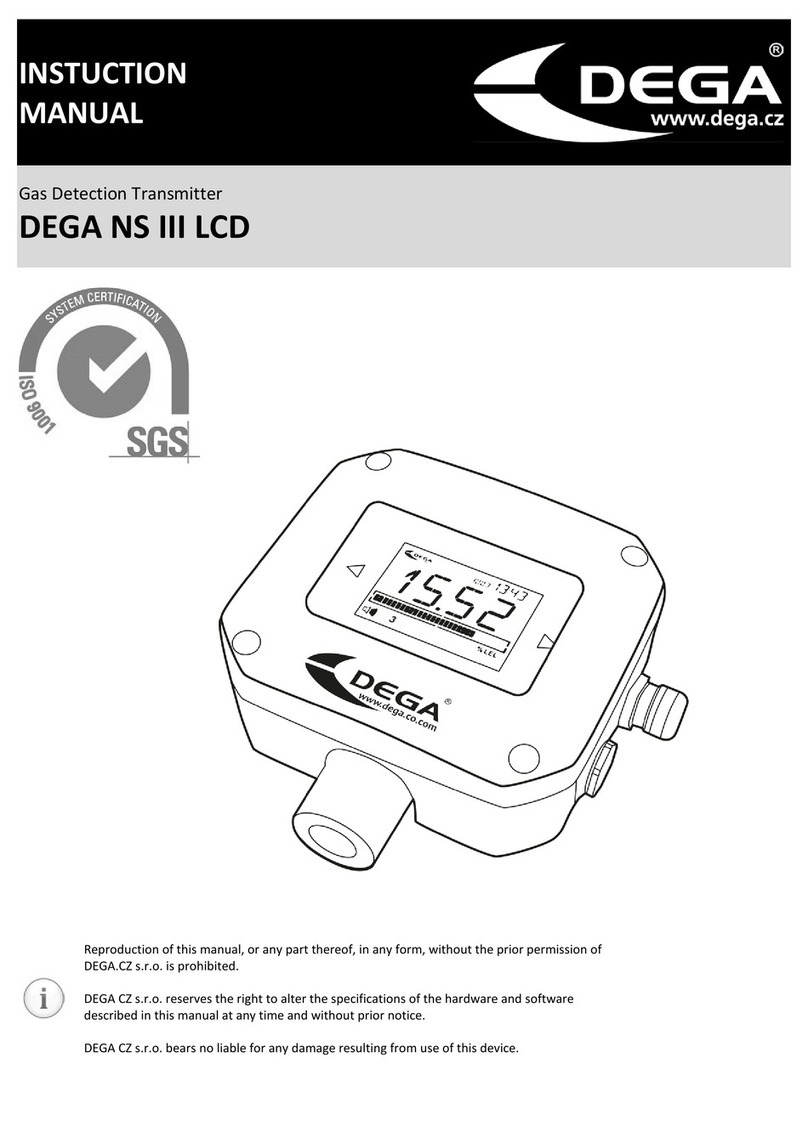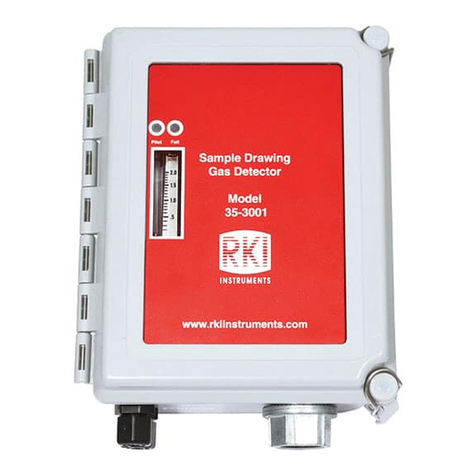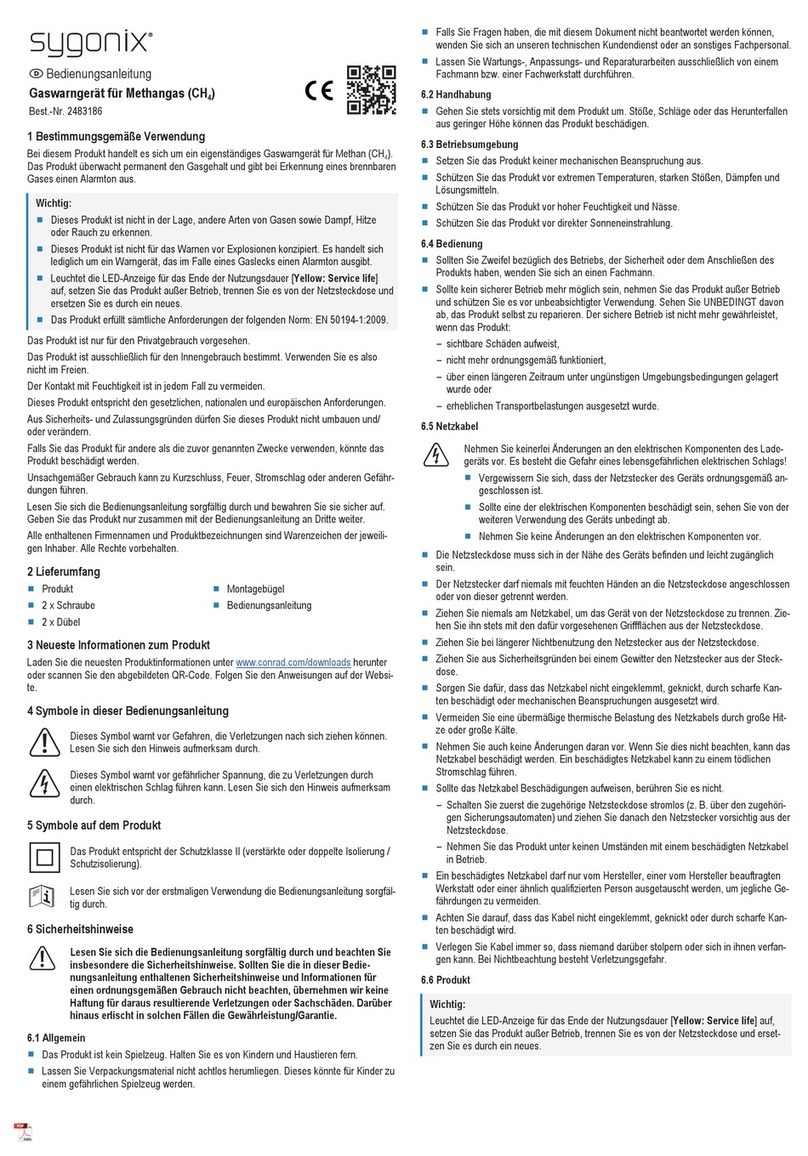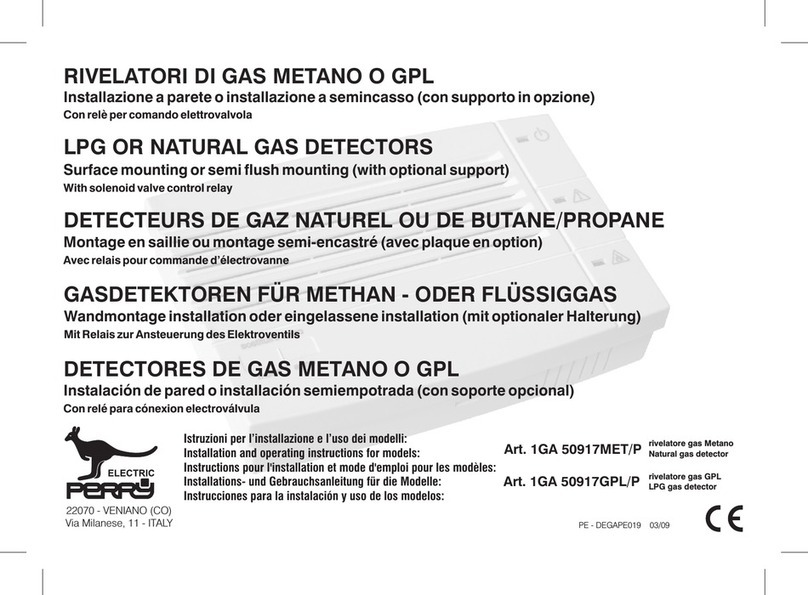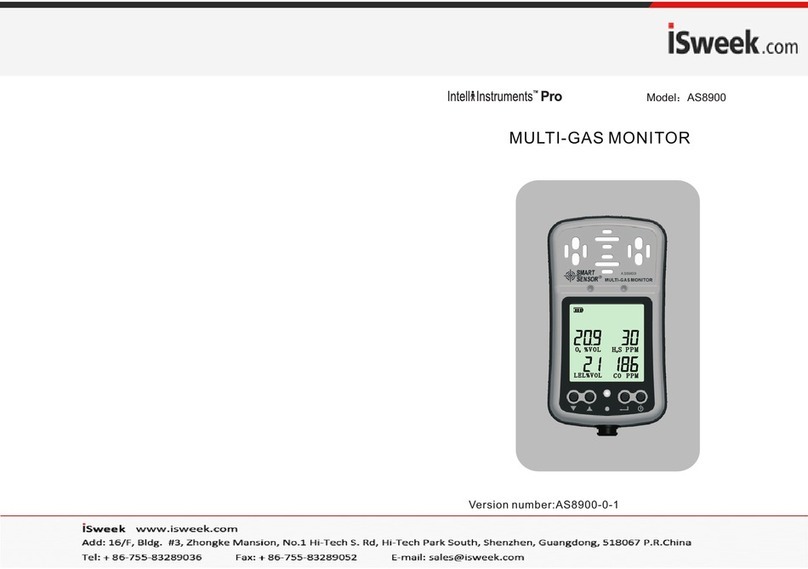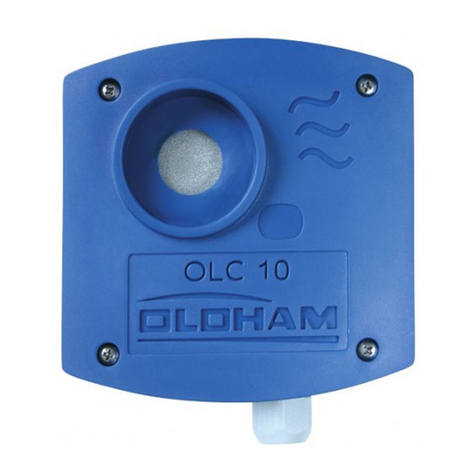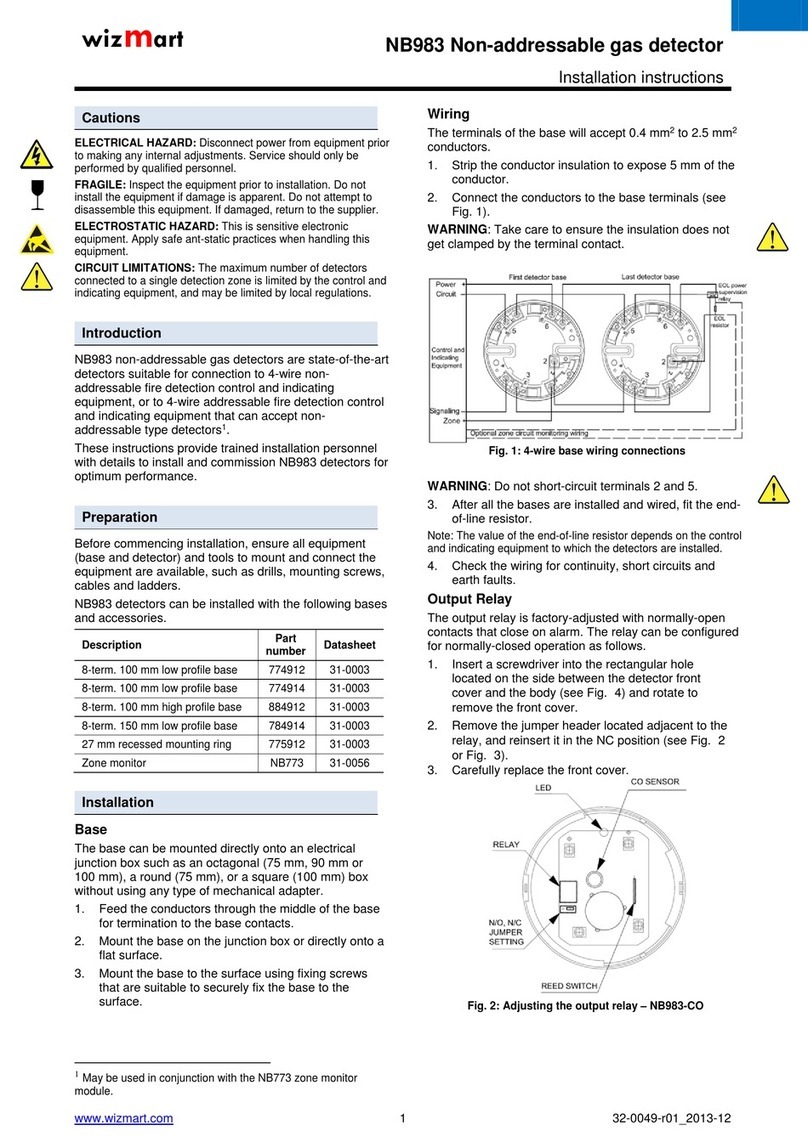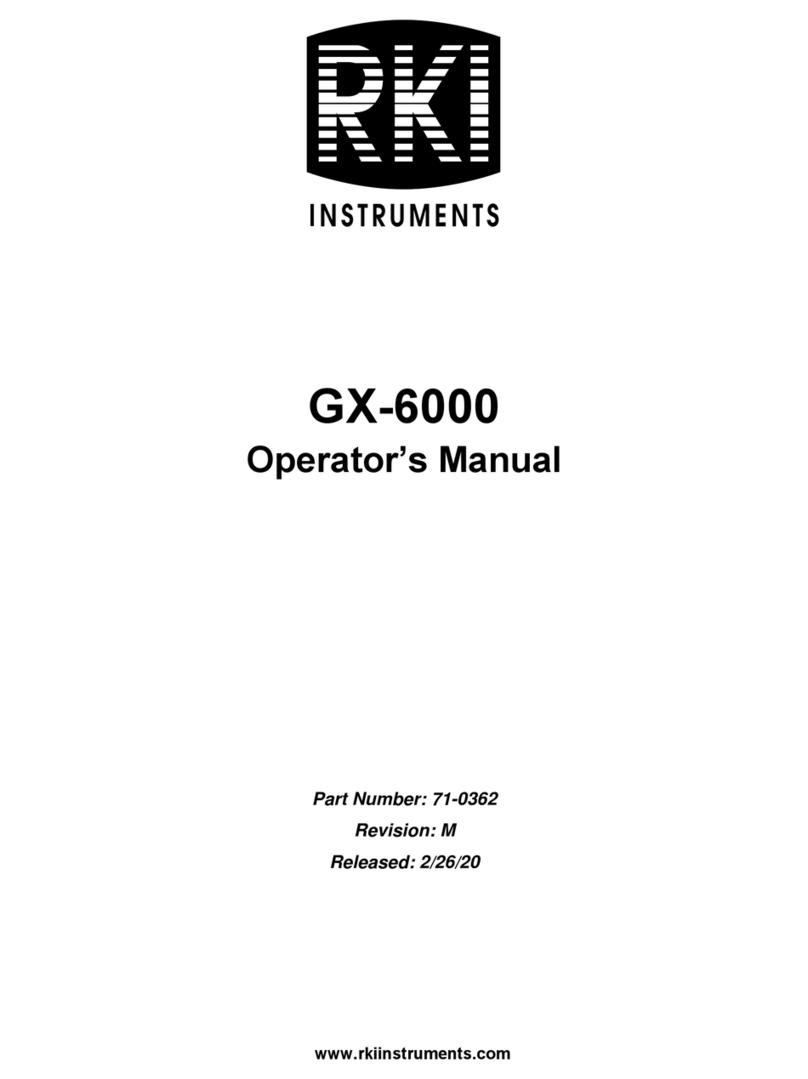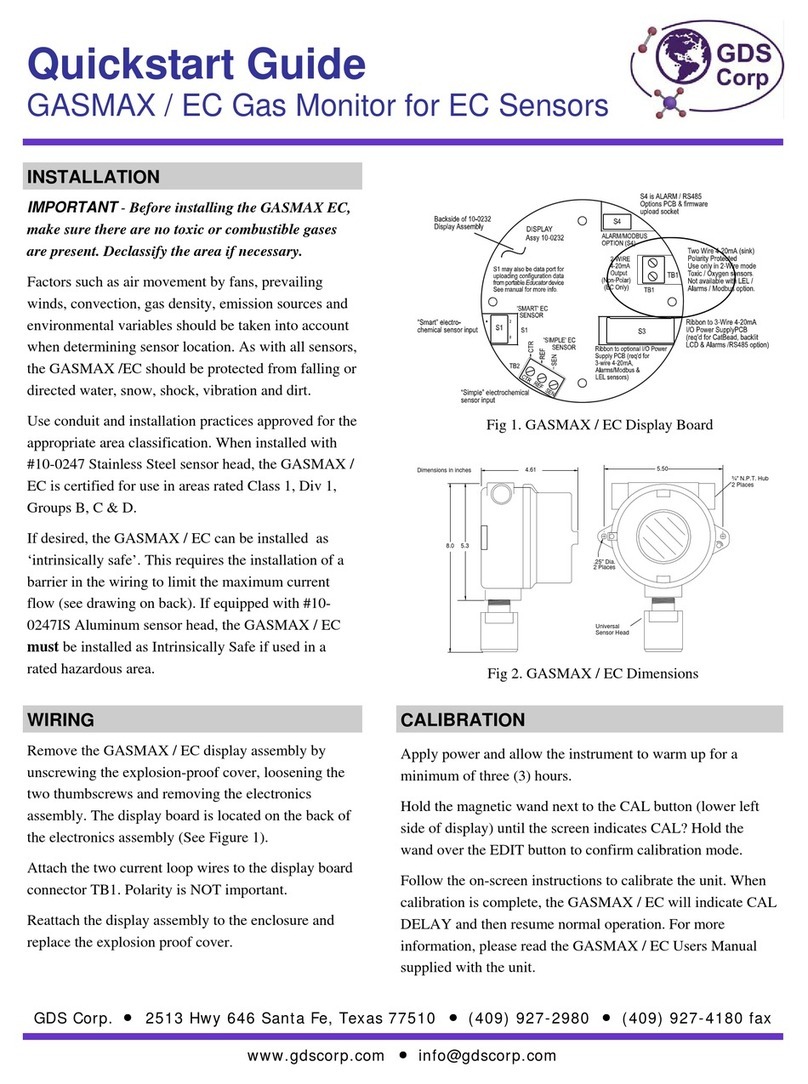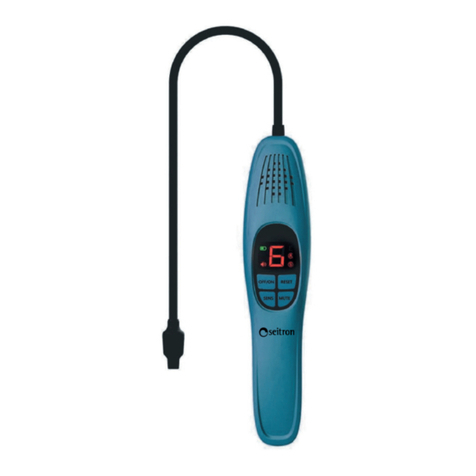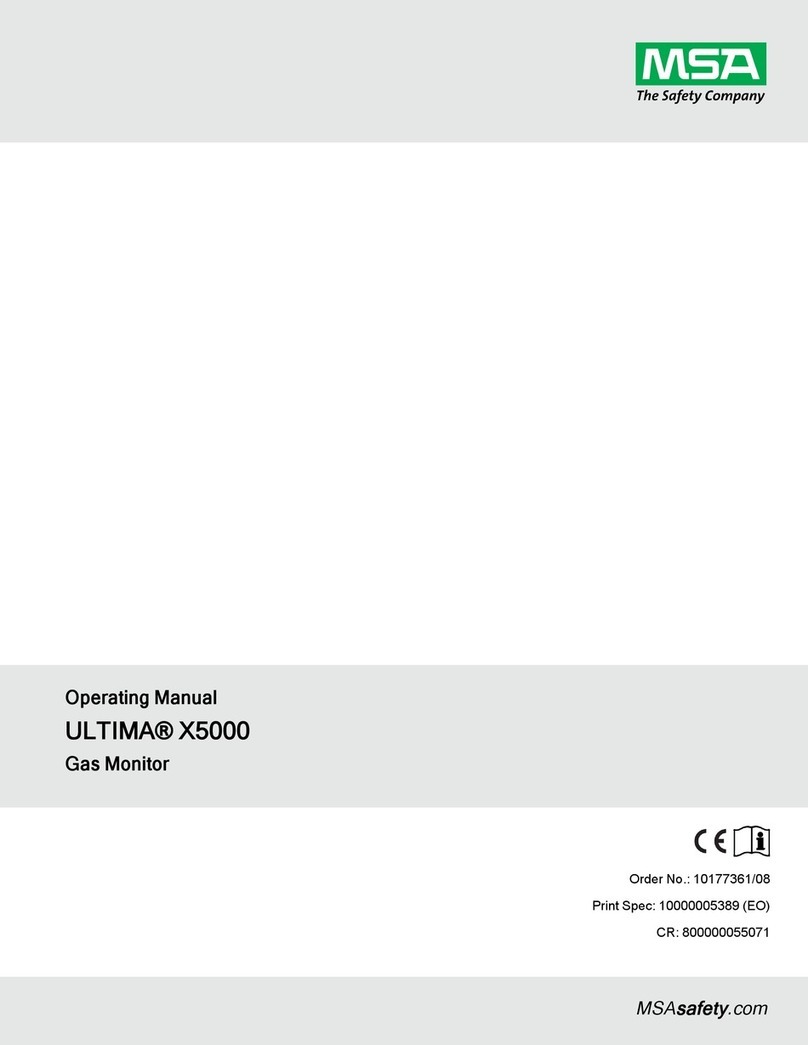
Table of contents
6.6 Monitoring operation . . . . . . . . . . . . . . . . . . . . . . . . . . . . . . . . . . . . . . . . . 33
6.7 Shutdown the detector . . . . . . . . . . . . . . . . . . . . . . . . . . . . . . . . . . . . . . . 33
6.8 Saving and downloading the product’s configuration . . . . . . . . . . . . . . . . 33
6.8.1 Saving the configuration . . . . . . . . . . . . . . . . . . . . . . . . . . . . . . . . 33
6.8.2 Downloading the configuration . . . . . . . . . . . . . . . . . . . . . . . . . . . 33
7 Advanced settings. . . . . . . . . . . . . . . . . . . . . . . . . . . . . . . . . . . . . . . . . . . . . . 34
7.1 "Graph" screen . . . . . . . . . . . . . . . . . . . . . . . . . . . . . . . . . . . . . . . . . . . . . 34
7.1.1 Description . . . . . . . . . . . . . . . . . . . . . . . . . . . . . . . . . . . . . . . . . . 34
7.1.2 Settings . . . . . . . . . . . . . . . . . . . . . . . . . . . . . . . . . . . . . . . . . . . . . 34
7.1.5 Recording . . . . . . . . . . . . . . . . . . . . . . . . . . . . . . . . . . . . . . . . . . . 35
7.1.4 Graph clearing. . . . . . . . . . . . . . . . . . . . . . . . . . . . . . . . . . . . . . . . 35
7.1.7 Viewing a recording. . . . . . . . . . . . . . . . . . . . . . . . . . . . . . . . . . . . 37
7.1.6 Saving a recording . . . . . . . . . . . . . . . . . . . . . . . . . . . . . . . . . . . . 36
7.2 Tree diagram of the "Settings" menu . . . . . . . . . . . . .. . . . . . . . . . . . . . . . 39
7.3 Set points Menu . . . . . . . . . . . . . . . . . . . . . . . . . . . . . . . . . . . . . . . . . . . . 47
7.3.1 Audio alarm and digital voice . . . . . . . . . . . . . . . . . . . . . . . . . . . . 48
7.3.2 Pollution function. . . . . . . . . . . . . . . . . . . . . . . . . . . . . . . . . . . . . . 48
7.3.3 Hard Vacuum reject point . . . . . . . . . . . . . . . . . . . . . . . . . . . . . . . 48
7.3.4 Sniffing reject set point . . . . . . . . . . . . . . . . . . . . . . . . . . . . . . . . . 49
7.3.5 Probe clogged set point . . . . . . . . . . . . . . . . . . . . . . . . . . . . . . . . 49
6.4.1
Hard vacuum test method . . . . . . . . . . . . . . . . . . . . . . . . . . . . . . . . . . . . . .27
6.4.2
Sniffing test method . . . . . . . . . . . . . . . . . . . . . . . . . . . . . . . . . . . . 28
6.5
Calibration . . . . . . . . . . . . . . . . . . . . . . . . . . . . . . . . . . . . . . . . . . . . . . . . . . . . . . . . . . 29
6.5.1
Calibration with the internal calibrated leak . . . . . . . . . . . . . . . . . . . 29
6.5.2
Calibration with an external calibrated leak . . . . . . . . . . .. . . . . . . . . . . . . . 30
6.5.3
Calibration procedure with external leak in Hard Vacuum test . . . . 30
6.5.4
Calibration procedure with external leak in Sniffing test . . . . . . . . . 30
6.5.5
Calibration on concentration . . . . . . . . . . . . . . . . . . . . . . . . . . . . . . 31
7.1.3 Scales Setting . . . . . . . . . . . . . . . . . . . . . . . . . . . . . . . . . . . . . . . . 34
7.2.1
Tree diagram of the "Set points" menu . . . . . . . . . . . . . . . . . . . 39
7.2.2
Tree diagram of the "Test" menu . . . . . . . . . . . . . . . . . . . . . . . 40
7.2.3
Tree diagram of the "Spectro" menu . . . . . . . . . . . . . . . . . . . . 40
7.2.4
Tree diagram of the "Maintenance" menu . . . . . . . . . . . . . . . . 42
7.2.5
Tree diagram of the "Configuration" menu . . . . . . . . . . . . . . . . 43
7.2.6
Tree diagram of the "Advanced" menu . . . . . . . . . . . . . . . . . . 44
7.4 Test Menu . . . . . . . . . . . . . . . . . . . . . . . . . . . . . . . . . . . . . . . . . . . . . . . . . 50
7.4.1 Test method. . . . . . . . . . . . . . . . . . . . . . . . . . . . . . . . . . . . . . . . . . 50
7.4.2 Correction factor . . . . . . . . . . . . . . . . . . . . . . . . . . . . . . . . . . . . . . 51
7.4.3 Test mode . . . . . . . . . . . . . . . . . . . . . . . . . . . . . . . . . . . . . . . . . . . 51
7.4.4 Automatic Cycle End. . . . . . . . . . . . . . . . . . . . . . . . . . . . . . . . . . . 51
7.4.5 Inlet vent . . . . . . . . . . . . . . . . . . . . . . . . . . . . . . . . . . . . . . . . . . . . 52
7.4.6 Memo function. . . . . . . . . . . . . . . . . . . . . . . . . . . . . . . . . . . . . . . . 53
7.4.7 Zero activation. . . . . . . . . . . . . . . . . . . . . . . . . . . . . . . . . . . . . . . . 53
7.4.8 Regeneration. . . . . . . . . . . . . . . . . . . . . . . . . . . . . . . . . . . . . . . . . 54
7.4.9 Massive mode . . . . . . . . . . . . . . . . . . . . . . . . . . . . . . . . . . . . . . . . 54
7.5 Spectro Menu . . . . . . . . . . . . . . . . . . . . . . . . . . . . . . . . . . . . . . . . . . . . . . 55
7.5.1 Tracer gas . . . . . . . . . . . . . . . . . . . . . . . . . . . . . . . . . . . . . . . . . . . 56
7.5.2 Filament parameters . . . . . . . . . . . . . . . . . . . . . . . . . . . . . . . . . . . 56
7.5.3 Calibrated leak . . . . . . . . . . . . . . . . . . . . . . . . . . . . . . . . . . . . . . . 56
7.6 Maintenance Menu . . . . . . . . . . . . . . . . . . . . . . . . . . . . . . . . . . . . . . . . . . 57
7.6.1 Detector. . . . . . . . . . . . . . . . . . . . . . . . . . . . . . . . . . . . . . . . . . . . . 57
7.6.2 Timers . . . . . . . . . . . . . . . . . . . . . . . . . . . . . . . . . . . . . . . . . . . . . . 57
7.6.3 Detector Information . . . . . . . . . . . . . . . . . . . . . . . . . . . . . . . . . . . 58
7.6.4 Pump Information . . . . . . . . . . . . . . . . . . . . . . . . . . . . . . . . . . . . . 58
6.5.6
Calibration with a pumping system in parallel . . . . . . . . . . . . . . . . . 31
3
0870231897_0001_IM_en
